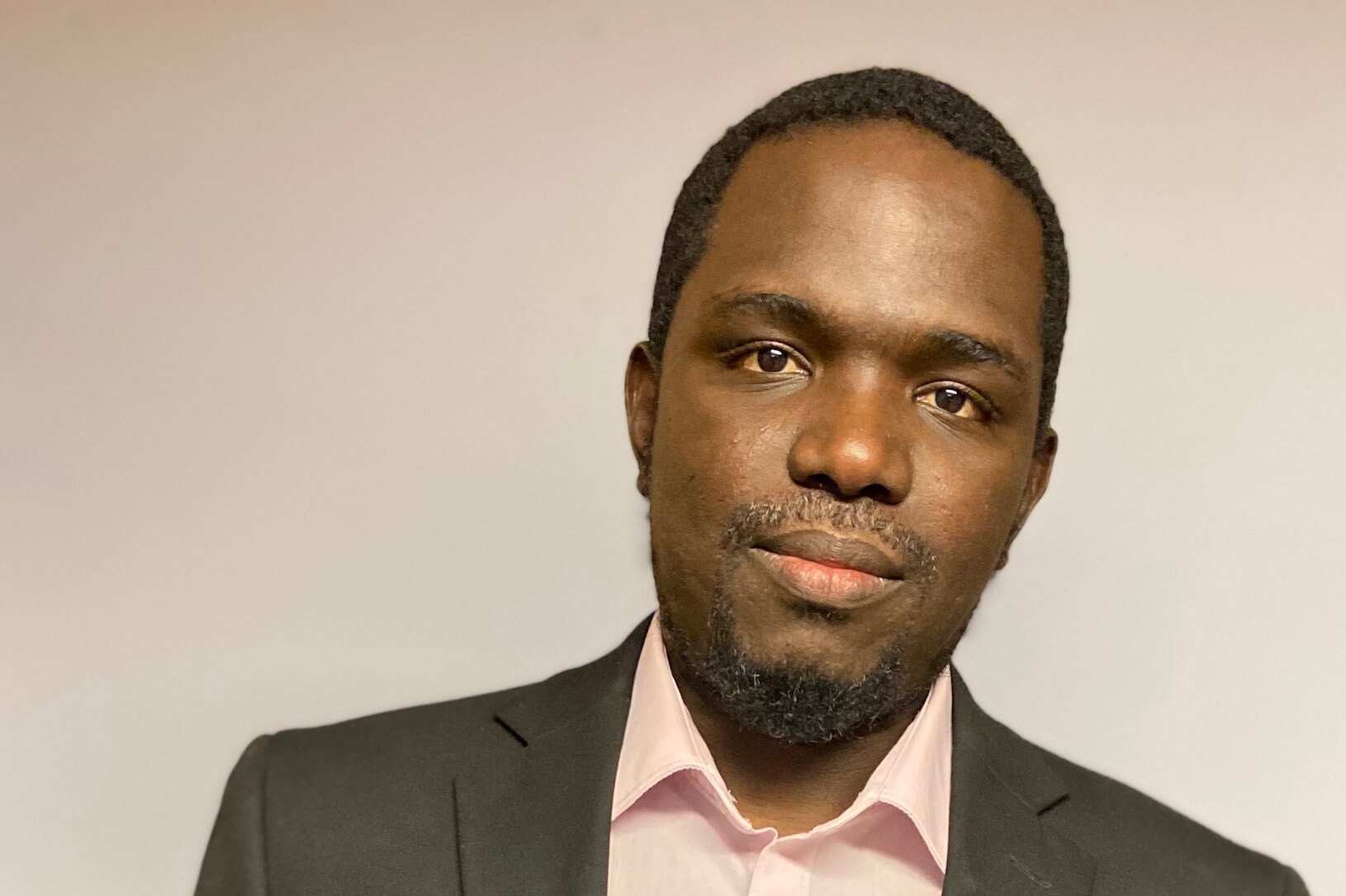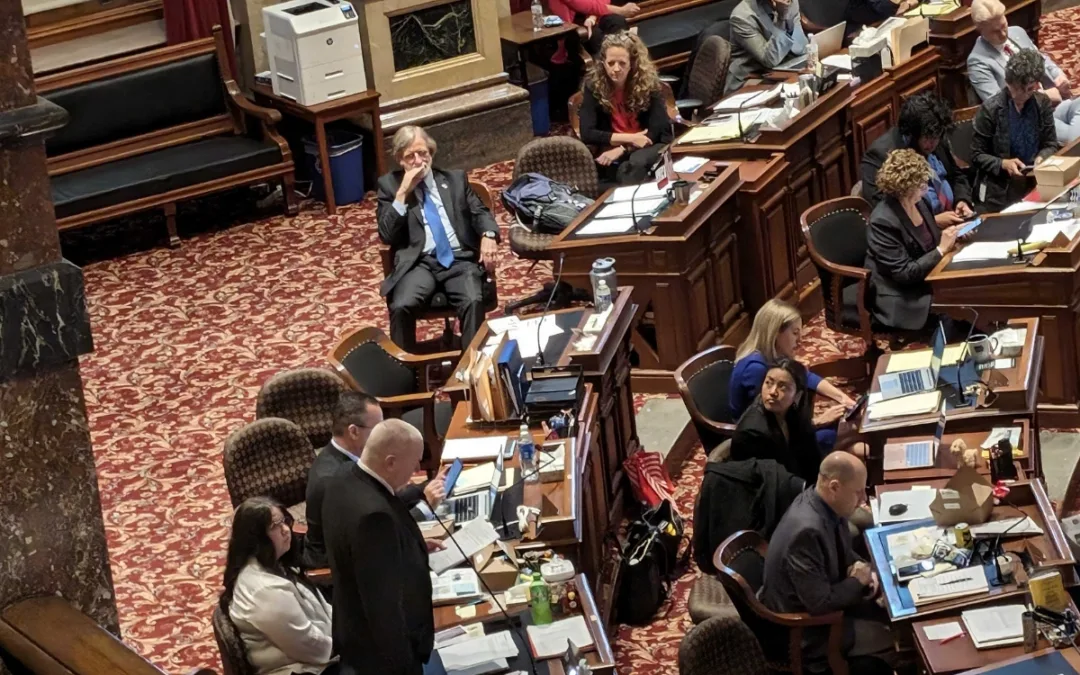
Photo: Umaru Balde
When President Donald Trump used the Defense Production Act to order meat and poultry processing plants to stay open, he also effectively declared a death sentence on many of these plant’s employees. It seems that his biggest concern was to keep the bacon hamburgers on our tables.
Many of these meat processing plants have been hot spots for the COVID-19. As has been reported, these plants employees are mostly immigrants and refugees that have come to this country escaping war, violence and extreme poverty.
Unfortunately a few days ago, Axel Kabeya, an immigrant from Congo, was another casualty of the greed and cruelty persevering in this administration. Kabeya was not only a Waterloo Tyson employee; he was a husband, a father of three, a pastor, a well-known member of his community and a friend.
I had the opportunity to speak to one of his friends, Umaru Balde, from Portuguese Guinea, West Africa, who is still in shock for the loss of his closed friend. They met three years ago and kept in contact.
“Before Axel got infected, we were talking about finally introducing our wives and kids, and then the virus hit and we had to stay at home,” he told me.
[inline-ad id=”0″]
According to Umaru, when the Waterloo Tyson meat processing plant reopened their doors on May 7 after a week of deep cleaning, Axel was there to translate for the employees who were getting their tests results. That’s when he started coughing and feeling sick, so he went home. His situation quickly worsened.
“Everyone was in shock when he died because he was a very healthy and active person, and it is hard to think that nobody is going to be able to attend his funeral because in our culture, funerals are one of the most important events of their lives (or afterlife),” Umaru said.
As an advocate for his community and a co-founder of the Cedar Valley Advocates for Immigrant and Refugee Rights, Umaru has witnessed what refugees have been going through. Facing the pandemic in a country that looks very different than theirs, with a different culture and language, many refugees simply don’t know what to do. They rely on social media for information, and the messages are confusing because the media is saying something very different than what the local leaders are saying.
[inline-ad id=”1″]
As an example, some refugees are discouraging each other from going to the hospital, believing it to be a worse place to be if you have the coronavirus and don’t speak English. Without relatives or friends being able to visit you there, the only information they’ll get is through an interpreter on the phone.
Umaru also said there’s a distrust of the local hospital system, with many feeling there’s insufficient cultural training for health care workers.
Many of these refugees have experienced wars and trauma in their home countries, and watching the news about the devastation of the COVID-19 brings a lot of memories.
“People have many fears, they are in panic and there’s no counseling for them because the few organizations helping them have very limited resources,” Umaru said.
[inline-ad id=”3″]
Another issue for plant workers is that many of their work-related injuries happen in their first few weeks of employment. Most don’t have health insurance or many benefits until they are hired permanently, at which point they may find themselves with large hospital bills. Litigation against Tyson has been difficult, and there’s a belief among workers that it’s an impossible battle to wage.
“Refugees believe Tyson own the city, you can’t do anything against them because you are going to lose, and even the police don’t act against them,” Umaru explained.
Umaru has been worried about the Tyson employees since the beginning of the pandemic because he knows the work conditions; he knows how crowded it gets in the break room and how close employees are in the lines.
“It is surprising to read about what Tyson executives say to the media about how the safety and the health of their employees is their priority,” he said. “If it is their priority, why did they close only for two weeks and have everyone back there? It’s not their priority.”
[inline-ad id=”2″]
According to data from the Iowa Department of Public Health, people of color in Iowa are disproportionately contracting the virus, due to many of them working in industries which are considered hot spots for the COVID-19.
“We feel that the rest of the community tolerate us, but they don’t accept us. We want to be accepted in the community for who we are,” Umaru said. “People need to recognize that it’s impossible for any of these communities to develop without the presence of immigrants and refugees.”
He also believes that corporate greed is what’s killing more people than the virus itself would.
After interviewing many people throughout the state, there’s something really clear for me: these companies hired immigrants and refugees because they are the only ones willing to do the job but definitely haven’t been intentional about keeping them safe. Their words haven’t match their actions and people know it.
by Claudia Thrane
Posted 5/17/20
Iowa Starting Line is an independently-owned progressive news outlet devoted to providing unique, insightful coverage on Iowa news and politics. We need reader support to continue operating — please donate here. Follow us on Twitter and Facebook for more coverage.
Politics

AEAs cutting workers in wake of Republican legislation
Iowa legislators said a new bill cutting money for agencies that help students with disabilities wouldn't affect services. But area education...

He said what? 10 things to know about RFK Jr.
The Kennedy family has long been considered “Democratic royalty.” But Robert F. Kennedy, Jr.—son of Robert F. Kennedy, who was assassinated while...
Local News

No more Kum & Go? New owner Maverik of Utah retiring famous brand
Will Kum & Go have come and gone by next year? One new report claims that's the plan by the store's new owners. The Iowa-based convenience store...

Here’s a recap of the biggest headlines Iowa celebs made In 2023
For these famous Iowans, 2023 was a year of controversy, career highlights, and full-circle moments. Here’s how 2023 went for the following Iowans:...




